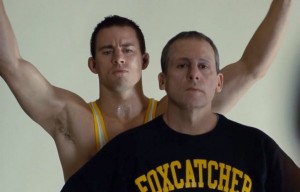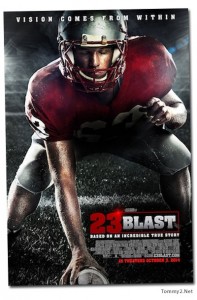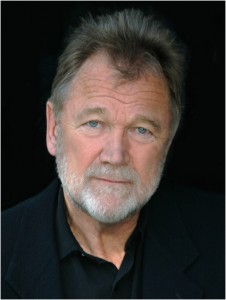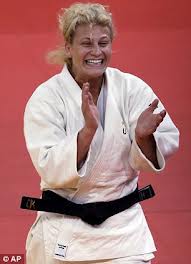Foxcatcher
Posted on November 20, 2014 at 5:55 pm

John Eleuthère Du Pont was of the wealthiest men in the world. He was an ornithologist, a philatelist, a purchaser of military weapons (including a tank), a wrestling fan who set up a luxurious training facility for the US Olympic team, and a murderer who died in prison in 2010. Steve Carell, almost unrecognizable, does a better job of erasing himself than of creating a different character. He has a hawkish nose, a set of small, inbred-looking teeth, a clenched posture, and the aristocratic delivery of a prep school graduate used to deference from everyone but his mother. But he is never able to make it all into anything but a cipher. Director Bennett Miller (“Capote,” “Moneyball”) and screenwriters Dan Futterman and E. Max Frye wisely stay away from simple explanations and Lifetime Made-for TV-style histrionics. Miller’s pallette is drab and his presentation is spare, in contrast to the opulence of the Du Pont estate and the training facility. But the film overcorrects, as though underplaying and long, silent stretches without even a musical score can somehow convey seriousness and import.
It begins promisingly as we see Olympic gold medalist Mark Schultz (a somber Channing Tatum) stumbling his way through a talk to some bored schoolkids about character and America, and then waiting awkwardly for his pay, $20. And one of the best scenes of the year is his practice session with his brother, best (and only) friend, and coach, David Schultz (Mark Ruffalo), also a gold medalist. There is enormous tenderness in David’s touch as he pushes on Mark’s arms to stretch him, and even as it seamlessly turns into a wrestling match that eloquently conveys intimacy, trust, dependence, and some competition as well.
Mark gets a call from some Du Pont factotum, inviting him to come to Delaware to meet John on his luxurious estate, called Foxcatcher because of the fox hunting history of the Du Ponts, a rare family that has been wealthy since the earliest days of American history.
On the surface, John conveys an easy noblesse oblige as he introduces himself, and Mark is nowhere near worldly enough to see the arrogance and instability under the surface. Mark has been listening to coaches all his life. When John says he likes to be called “Eagle,” Mark sees leadership. When John says he wants to help Mark be the best in the world, Mark sees a chance for something he did not let himself realize he wanted, a chance to be more independent. And independence is what John is looking for, too. He is an adult dependent in many ways on his mother, bitter about her focus on horses and her obvious feelings for him, somewhere between indifference and contempt.
John builds a lavish training facility (in real life for more sports than just wrestling). “Foxcatcher” is emblazoned everywhere. The athletes are polite, even respectful, but no one thinks John has anything but money to contribute. Mark loves being seen as special and gets caught up in John’s decadent lifestyle. But then John, who has the attention span of a mayfly, decides he needs to bring Dave in, too. Dave’s lack of interest only makes him more determined. Soon, Dave and his wife and children are at Foxcatcher. Mark is resentful. John is increasingly unstable and there is no one there to stop him until it is too late. When it’s over, he is affectless. The problem is, too much of the movie is as well.
Parents should know that this film has tense and disturbing confrontations, some violence including murder, strong language, drinking, and drugs
Family discussion: What was John hoping to achieve by sponsoring wrestlers? How did he feel about John? How did he feel about Dave? Why?
If you like this, try: “Capote” and “Reversal of Fortune”




 It is a remarkable story. In 1959, when she was a single mother, Rusty Kanokogi disguised herself as a man in order to compete in the New York State YMCA Judo Championship. She beat the reigning champion and won the tournament. While on the podium after having received her medal she was asked if she was a girl. She admitted that she was.
It is a remarkable story. In 1959, when she was a single mother, Rusty Kanokogi disguised herself as a man in order to compete in the New York State YMCA Judo Championship. She beat the reigning champion and won the tournament. While on the podium after having received her medal she was asked if she was a girl. She admitted that she was.